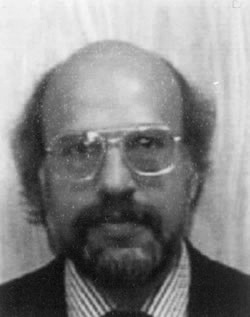|
My first collection of stories, Notes of a Mediocre Man: Stories of India and America, was recently published. There are 18 stories in the collection, and the traditional, linear stories were generally easier to write. However, the poetic stories (the "poems in prose") sometimes took thousands and thousands of hours each (yes, thousands), and sometimes did not get finished until over 20 years later. I would like to share a few lessons from these latter stories.
(1) "Munnu Shunnu"—This is the first story in the collection, about two brothers who come to school and do nothing but tell stories. The opening sentences of this story originally read as follows:
The two brothers in school, how can one forget them? Their ranks were the lowest in class. In sports they were the worst. And the stories they came in with, always the stories.
I liked this beginning and went with it. But I always kept running into trouble. I had a scene on the ranks of students in the class—and the boys' indifference to their own low ranks. I had a scene on the students playing sports, and the boys' poorness in it. I had a scene on the boys telling stories. But the proportions seemed all wrong, and it was unclear to me where the story was headed. It took me a long, long time to figure out that the best part of the story—the deepest part—was the boys telling their stories, and that what I needed to do was to have the boys tell these stories, and that the other things—their low ranks, their poorness in sports, and everything else—would have to be a subset of their telling stories.
The revised (and final) opening sentences of the story read as follows:
The two brothers in school, how can one forget them? Their ranks were the lowest in class. In sports they were the worst. But the stories they came in with, always the stories.
The only change in the opening sentences was the And to the But. But what a world of difference this one change made. The rest was the courage to believe that it could work and that I could make it work. I would need little twists and turns to give the story momentum and keep it going. But the heart of the story was as simple as it could be: the boys would tell their stories (indeed they would often come bursting into class with their stories), and that was that. The final version of the story some people have called "poetic," "mythic," "incantatory." The key lesson for me was courage and perseverance. I persisted, I persisted, and I made it work. There was something here—a soul of something special—and I would not let it go.
(2) "Mother of Gulu"—This is the story about a woman who tells the story of her husband's death in the fighting that took place at the time of India's partition (in 1947) into India and Pakistan. Here are the opening lines of the story:
It was 1947, Bipan, a long time ago. The Muslims came, they killed him. Seven there were: three with knives, two with sticks, and the other two (did I tell you)—they kept watch at the door. Muslims they were, yes, and they killed him—they killed my husband.
The first six pages of this story—the woman beginning her story and telling it more or less in complete form—came easily. But then the question came up: What now? What next? Here again I struggled for years and years. I tried this direction, I tried that. The woman comes out of her grief, she doesn't come out of her grief. Finally I came to the only possible, the inevitable, conclusion: the woman would tell the same story again and again, indeed she would tell it until the end of time. Anything else would be to cheapen her experience, would be to cheapen her story.
Like "Munnu Shunnu," this too became a more lyrical story, a "poem in prose." There would be little twists and turns—the story needed momentum, it couldn't get boring. But the heart of the story was the heart of the story, and I had to stay true to that. The story would be cyclical, not linear. A cyclical view of the world was closer to the Indian view of the world anyway, and what was this woman if not Indian?
(3) "My Father Is Investigated by the Authorities"—This is the story, told by a boy, of what happens to his father. Though much easier to write than the two stories mentioned above, this story did face one key question: just what is the crime of which the father is accused? Here, as in the stories above, I trusted myself and followed the only conclusion possible: the crime of the father simply could not be specified. To specify it would be to lessen the story, to cheapen it.
The goal was not to be Kafkaesque—that word never entered my thinking until a blogger praising the story later mentioned it—but to be true to the story. The story was mythic in tone, had nice details, and was already working quite fine. Why diminish it by providing a detail it did not need?
To summarize, the lessons I learned were really very simple ones. Trust yourself. Listen to, and stay true to, the people in your stories. If that means breaking conventions or creating new forms, so be it. Fiction is, in that way, a wonderful thing. It is made-up stuff, lies, but it won't let you lie about the important things. If you lie about the important things, if you come up with something that is false, really false, it will spit it out and let you know it.
|


